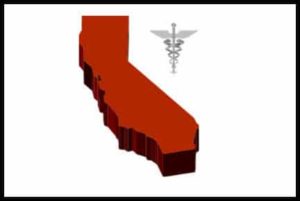 Over the past several weeks, we have been fielding calls from addiction treatment providers in neighboring states who have been contacted in the same expanding Health Net investigation that hit many if not most Southern California programs. One particular hotspot of Health Net activity has been Prescott, Arizona. The stories from programs are similar to what California facilities have reported: the suspension of payment by Health Net without explanation, letters questioning marketing practices, and a representative of the same private investigative firm trying to engage provider representatives.
Over the past several weeks, we have been fielding calls from addiction treatment providers in neighboring states who have been contacted in the same expanding Health Net investigation that hit many if not most Southern California programs. One particular hotspot of Health Net activity has been Prescott, Arizona. The stories from programs are similar to what California facilities have reported: the suspension of payment by Health Net without explanation, letters questioning marketing practices, and a representative of the same private investigative firm trying to engage provider representatives.
Reports have confirmed some of the same conduct we have previously reported, including private investigator trumpeting of previous FBI experience repeatedly in conversation. Unsurprisingly, the impact of this ‘Faux B.I.’ investigation has intimidated program representatives and generated anxiety.
The expanded Health Net investigation appears to have progressed in the same way: beginning with data analysis of newly enrolled patient addresses (to identify patients who moved from out of state) and payment sources for insurance. These data points are then provided to investigators to go out and ask questions: how did this patient get to this program? How did this patient get insurance? What role did any program or third party play in helping the patient get insurance?
The big distinction in Arizona and elsewhere from California has been the cooperation of law enforcement in Health Net’s investigation. This is troubling because, in some cases, addiction treatment programs have complained directly to the Arizona Department of Insurance concerning Health Net and Templeton Global’s abusive treatment – only to find that the Department compounded the problem by buying into the accusations and “piling on.”
We have received reports, for example, of law enforcement visits to treatment centers to question how clients found out about the availability of insurance and treatment centers, as well as how long residents have lived in Arizona, where they lived previously, and who paid for their airline ticket to come to Arizona. These questions are plainly directed at calling into question the legitimacy of the marketing practices of drug treatment centers. They convey the implication that marketing addiction treatment to a national clientele and assisting patients without insurance to secure coverage are inappropriate.
One troubling aspect about government joining Health Net in asking these questions is the disregard for the lines between legal and illegal conduct. While it is appropriate for law enforcement to question inappropriate inducements (i.e. paying for patients), there is nothing wrong with educating people in need and their families about the availability of resources, including insurance coverage that the Mental Health Parity Act and the Affordable Care Act have made available. Given that the cost of treatment is an overriding concern for most prospective clients and their families, helping navigate the options is a valuable service.
Nor is there any issue with marketing nationally. In a competitive marketplace where consumers are using the Internet to find the right treatment provider, it is both legal and logical for programs to encourage people to consider relocating for long-term treatment – especially given the concentration of excellent addiction treatment providers in areas like California, Florida, and Arizona.
Operators of drug treatment centers need to understand their rights, as well as the rights of their patients. The public interest is in helping, rather than intimidating, people who need and provide treatment, and providing more information on how people can find insurance coverage and the access to care they need in compliance with the law.
For more information/questions regarding any legal matters, please email [email protected] or call 310.203.2800.